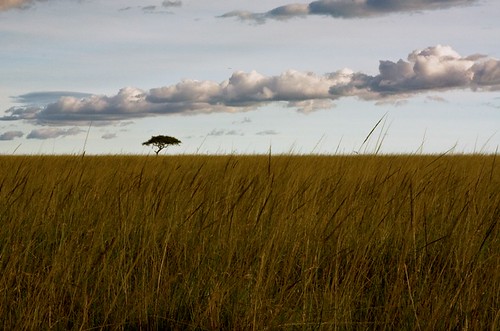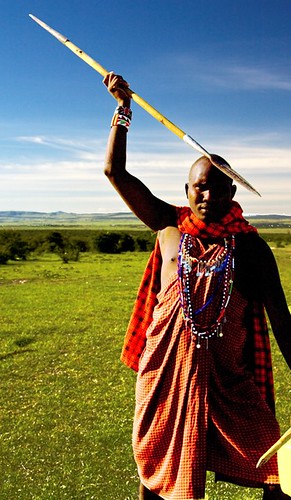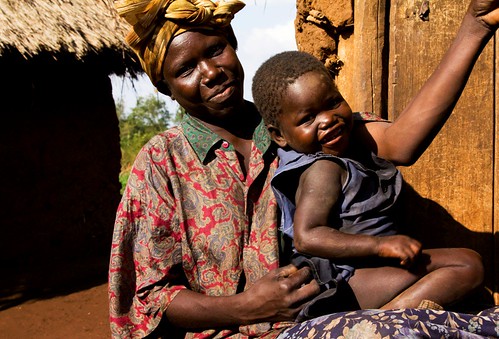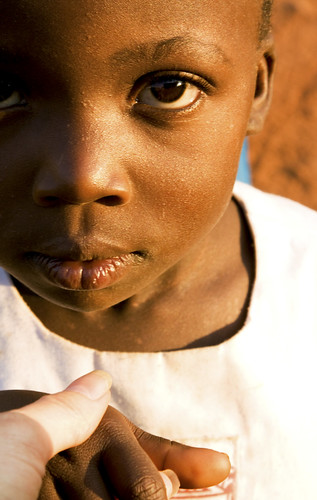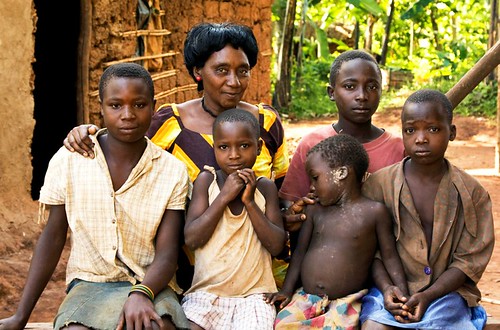“The kids are going to freak out when they meet you,” my sister said to me as we passed through the gates of the elementary school around the corner from USC. “They’ve been asking about you for weeks,” she added smiling.
I looked out the window mimicking her expression, eyeing the impressive compound located in one of LA’s tougher neighborhoods, pit bulls yelping across the street, weeds usurping gardens and pavement cracks. I was excited to meet the children. I felt I already knew them from my sister’s descriptions and from their letters - they had been pen pals with my African kids for the last several months.
I had read each of the little Angelinos’ amusing letters, which were filled with insightful questions (Do you walk? Do you know about camouflaging? ) and served as portals into their young minds (I like math because when you get older you have to make sure when you buy something you have to give them the right amount or your going to have less money in your bank account). But most of all, it was touching to see how the children, mine and my sister’s, connected with each other from opposites sides of the globe. One American wrote to my ten year old Beatrice: I’m sorry about your mom. My dad passed away too and then my grandma and grandpa in the same year.
I was to give four presentations that day, one to each class that wrote my children. The first class was paired with Sylvia, my eight year old. Melanie knocked on the door just after the first bell rang and a boy struggled to push open the heavy door, first seeing my sister then me. My sister and I bear a strong resemblance; he had to have known. His tiny mouth dropped and his wide eyes glowed.
“Wooow,” he gushed, his back pressed against the door in disbelief as we walked past and the rest of the second graders turned around; soft squeals filled the room.
“Class. Ms. Crane is here with a guest,” the teacher said introducing us, but apparently we needed no introduction. They knew my sister from the talks she gave on Sylvia and me. They sat mesmerized through my sister’s presentations as well as mine, which included a slide show on life in Uganda followed by Sylvia’s answers to their most recent round of questions to her.
“Mariana. Which one of you is Mariana?” I asked the group of doe-eyed intent faces staring back at me. A little girl raised her hand. “Mariana, you asked Sylvia, ‘How do you feel on Christmas?’ Sylvia said she feels ‘burungi,’ that means good in Luganda. She also says that she likes swimming on Christmas.” Mariana’s eyes grew to saucers and her mouth spread to an exaggerated grin. (I grinned too, but remained silent about little Sylvia likely not ever swimming as her village was not immediate to a body of water.)
“Adriana. Who is Adriana?” Another girl’s arm shop up. “Okay Adriana. You asked Sylvia, ‘Do you have libraries? Do you go on field trips?’ Sylvia said, ‘No, we don’t have a library, but Maama Muzungu bought some books for us to read’.” I then explained that Sylvia didn’t know what field trips were because she has never been on one before.
I continued to go through the list of questions and answers, the children listening, interest sketched across their small faces. Then I asked for Rebeca.
“Rebeca. You asked Sylvia what her voice sounded like. She said she didn’t know, but I recorded her so you can see her and hear her voice for yourself.”
Rebeca couldn’t even smile; her face relaxed into suspended disbelief. I reached over for my laptop, pressing play for the queued video.
“Here, Rebeca. This is for you and the rest of the class.”
